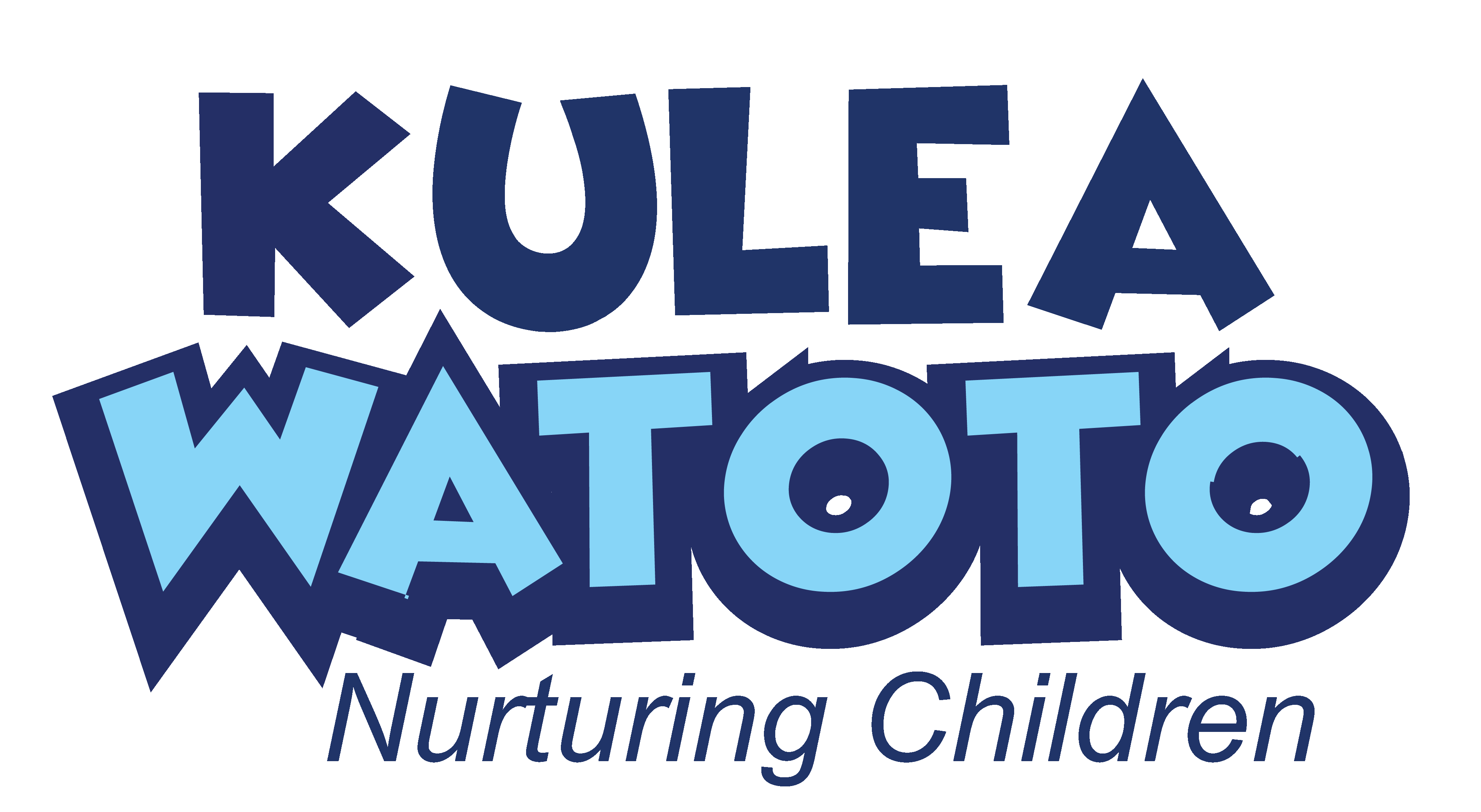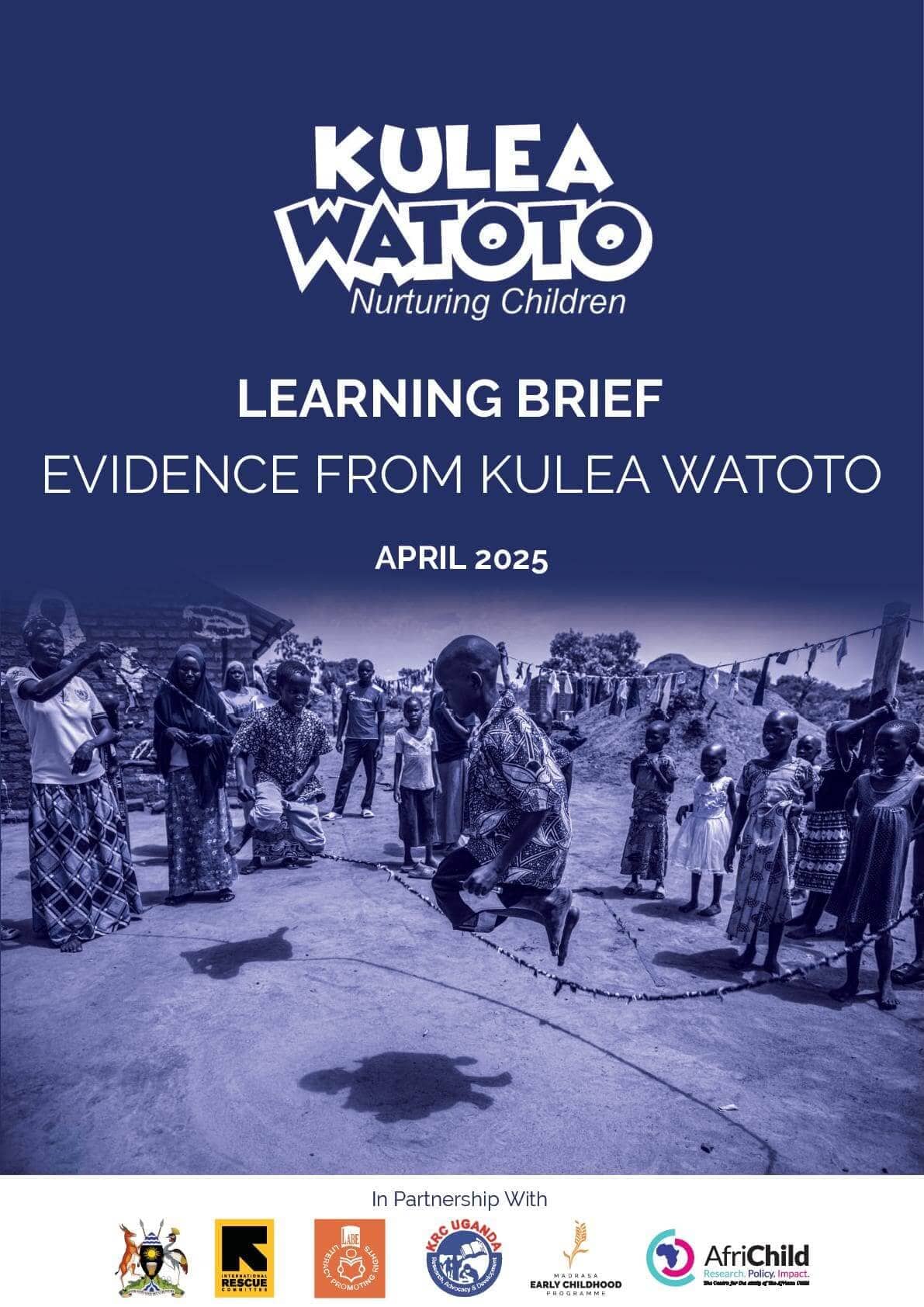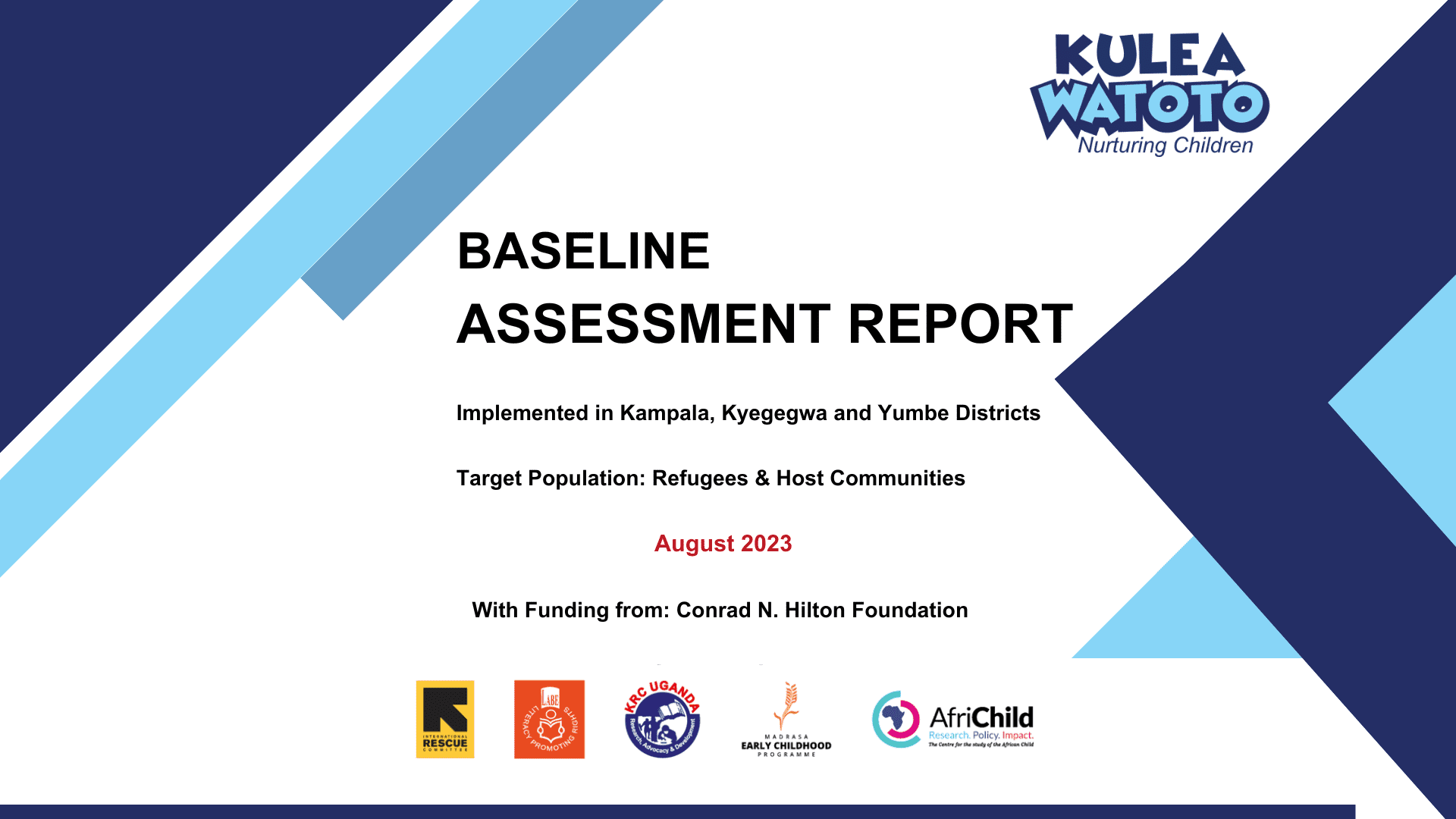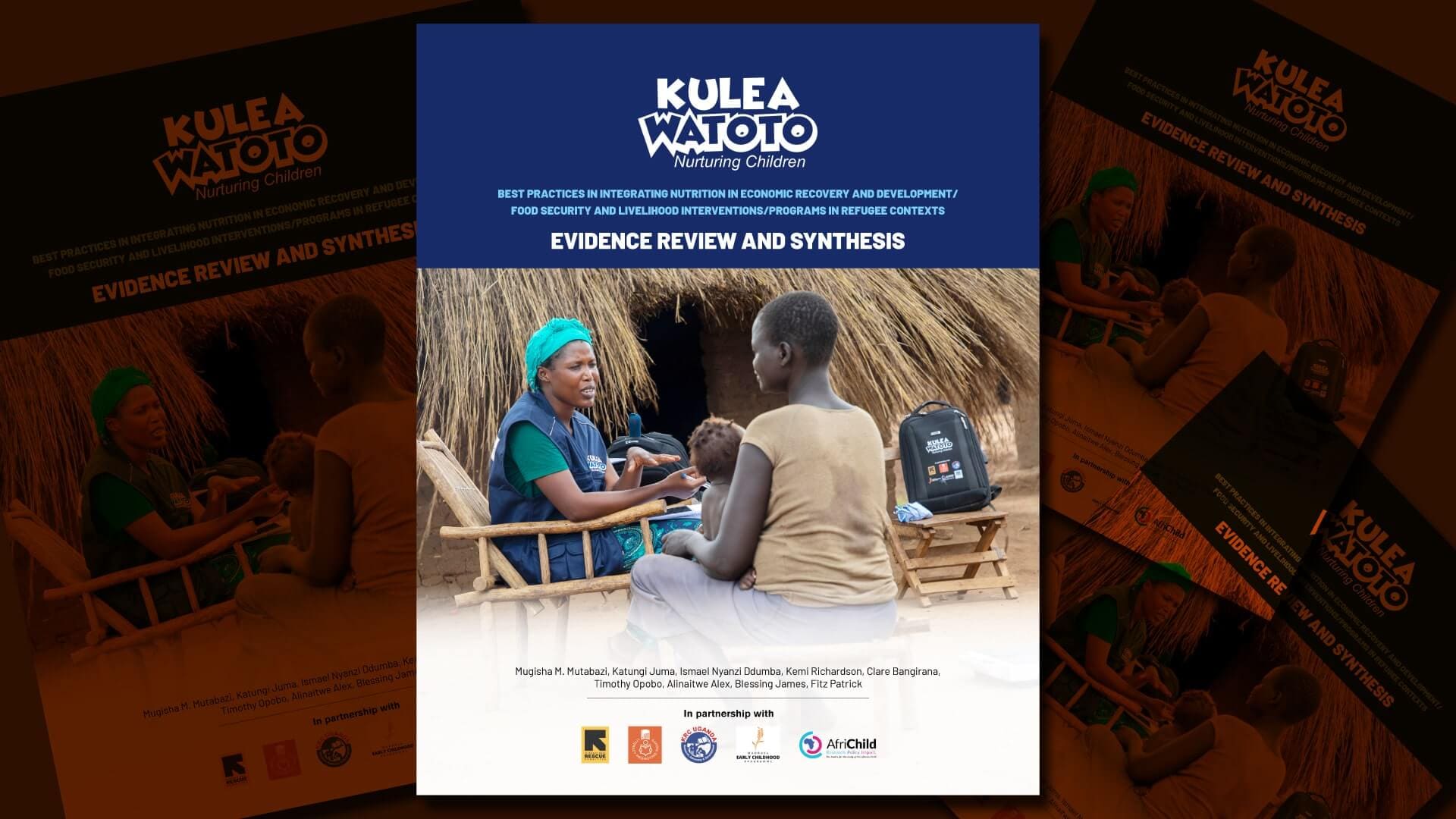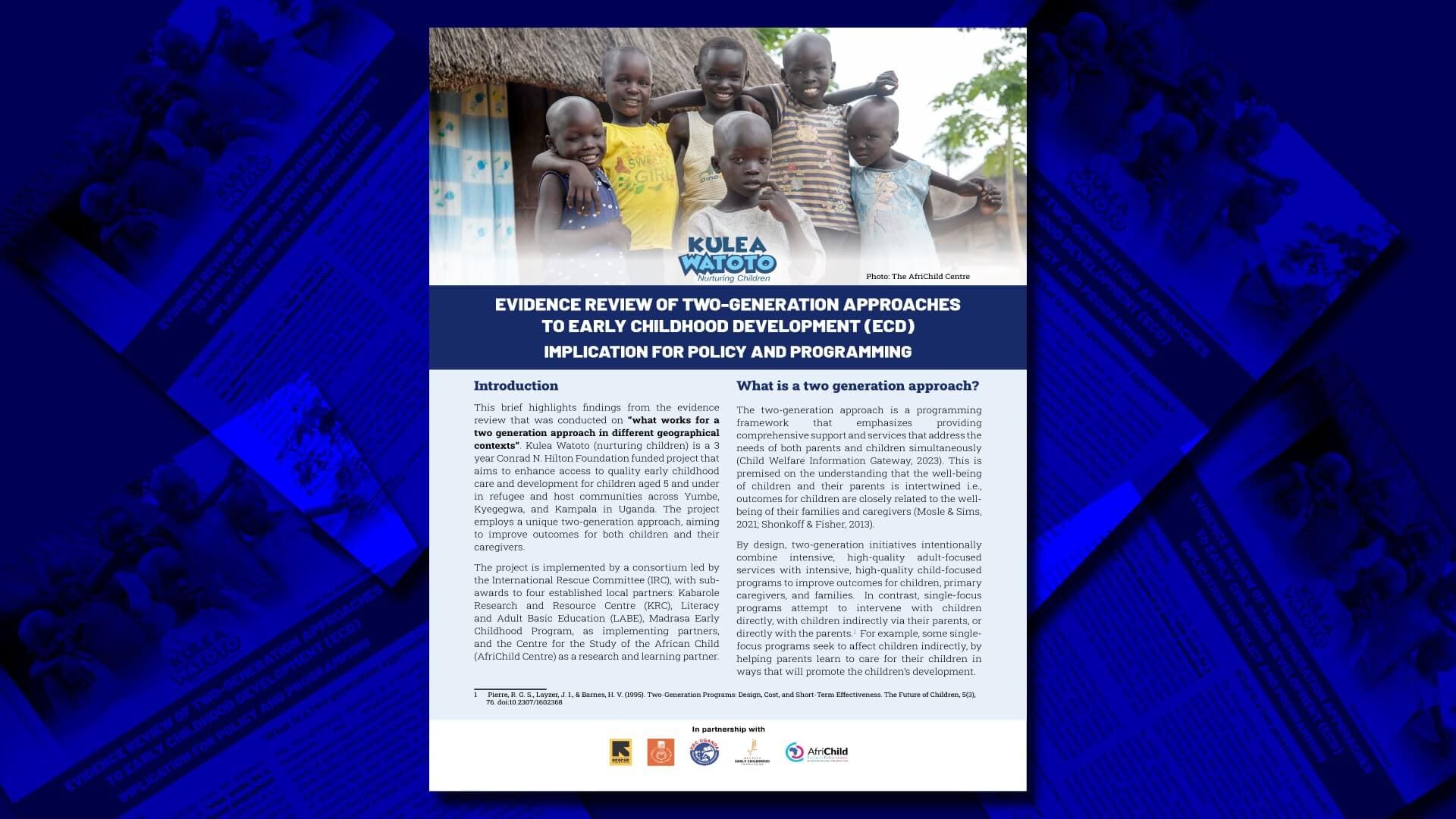Evidence from Kulea Watoto Learning Brief
Evidence from Kulea Watoto Learning Brief
The brief is informed by a study conducted by the Kulea Watoto Research Team to identify and document best practices and lessons learned. The study combined an in-depth analysis of program reports, partners, and fieldwork to generate recommendations for scaling effective two-generation strategies in different contexts (urban versus rural). The research covered links between livelihoods, food security and early learning programs, as well as feedback from program beneficiaries.
A qualitative research approach with a phenomenological design was used to capture participants' experiences and insights from the three project sites. The participants included parents/caregivers, district local government officers in charge of education and production, Kulea Watoto beneficiaries and partner staff. Data was gathered through key informant interviews, focus group discussions, observation guides, and documentary analysis. Audios recordings from the interviews were transcribed and translated for thematic analysis.
